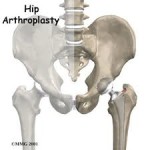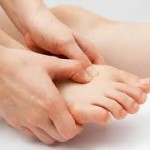 Running is an activity that engenders loyalty and perseverance. Runners are often accused of being addicted to their sport and others call it getting a runners ‘high’. What ever the explanation, athletes who choose to run do anything in their power to continue the activity, well past the time when their physicians tell them to stop.
Running is an activity that engenders loyalty and perseverance. Runners are often accused of being addicted to their sport and others call it getting a runners ‘high’. What ever the explanation, athletes who choose to run do anything in their power to continue the activity, well past the time when their physicians tell them to stop.
Running with knee replacement may just be that time when continuing the sport becomes more of a problem for the athlete than the stress and grief of stopping. And, unfortunately, there really aren’t options for running with knee replacements.
In order to fully understand why running with a knee replacement isn’t a good idea you first have to understand how the knee and subsequent knee replacement works. The knee absorbs much of the weight distribution as a person walks and runs. As a means of cushioning, the body has cartilage and discs between the bones so that bone doesn’t rub on bone with each step.
 As people age the cartilage and discs can become injured, damaged and fragmented. This causes the bone to rub on bone as people walk and run. This condition can’t be changed with medication, injections or surgical repair. Instead physicians will recommend a knee replacement to decrease the pain and improve function.
As people age the cartilage and discs can become injured, damaged and fragmented. This causes the bone to rub on bone as people walk and run. This condition can’t be changed with medication, injections or surgical repair. Instead physicians will recommend a knee replacement to decrease the pain and improve function.
Once a knee joint has been replaced the joint isn’t as strong or repairable as the bodies own joint. In a study of hip and knee replacement published by Mayo Clinic, the opinions of the surgeons were that recommended sports included swimming, sailing, scuba diving, golfing and bowling while those that weren’t recommended include running, water-skiing, football, baseball, basketball, hockey, handball, karate, soccer and racquetball. Basically it boils down to sports that are high or moderate impact sports aren’t recommended because they cause damage to the implanted knee joint. While the damage to the joint doesn’t result in pain it does result in decreased function and subsequent need for another replacement.
In another study in 1996 by physiatrists (doctors in physical medicine and rehabilitation) at the Mayo Clinic, the doctors were much less likely to recommend a person not go back to sports that included high or moderate impact. Both studies showed the difference in physician recommendation to their patients and also the expectations of the ability of the implanted joint to perform under high stress situations. In other studies the effect of high and moderate impact sports has been shown to be deleterious on the longevity of the knee replacement joints.
Although the pain you felt before the surgery has been eradicated the mechanical limitations of the replaced metal and plastic knee don’t hold up to the impact of running with knee replacement. The bottom line is that the replacement isn’t as durable as the original equipment.
Resources:
BoneSmart: Running After Knee Replacement
http://bonesmart.org/forum/threads/running-after-knee-replacement.7061/
Scottsdale Joint Center: Total Knee Replacement Precautions: What Activities are OK?
http://www.scottsdalejointcenter.com/Patient-Education/Total-Knee-Replacement-Precautions-and-Activities.aspx
Arthritis Foundation: Knee Replacements Not Harmed by Most Sports
http://www.arthritistoday.org/news/knee-arthroplasty-replacement-sports047.php
Online Orthopaedics: Dos and Don’ts Following Total Knee Replacement
http://www.orthopodsurgeon.com/dodont.pdf
The Barefoot Runners Society: Barefoot Running after Knee Replacement
http://www.thebarefootrunners.org/threads/barefoot-running-after-a-knee-replacement.4003/
American Academy of Orthopedic Surgeons: TKA in Younger Patients
http://www.aaos.org/news/aaosnow/apr12/clinical17.asp
American Journal of Preventative Medicine: Long Distance Running and Knee Osteoarthritis
http://www.ncbi.nlm.nih.gov/pmc/articles/PMC2556152/
Rheumatology: Outcomes of Total Knee Replacement
http://rheumatology.oxfordjournals.org/content/44/8/1032.long


Leave a Reply